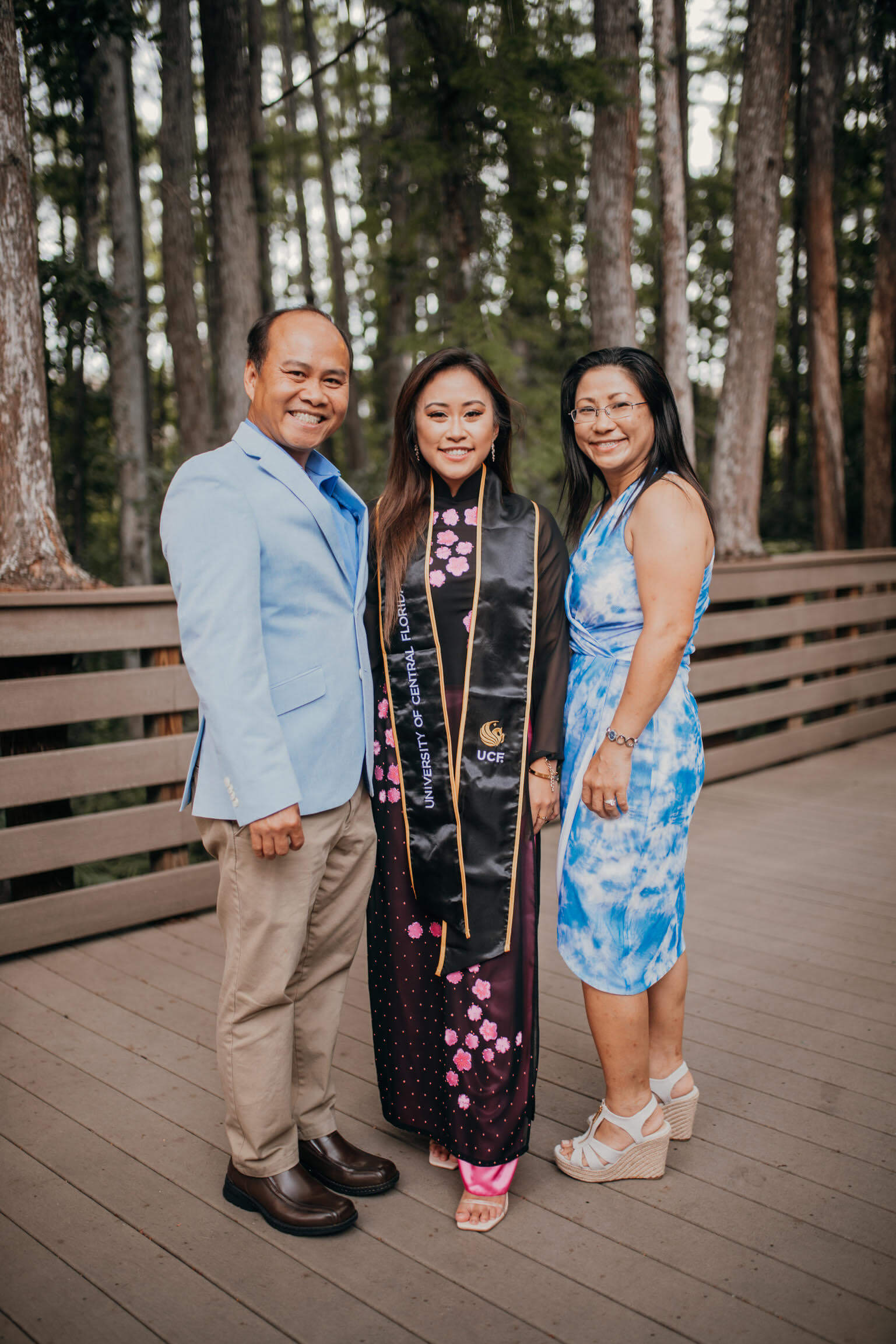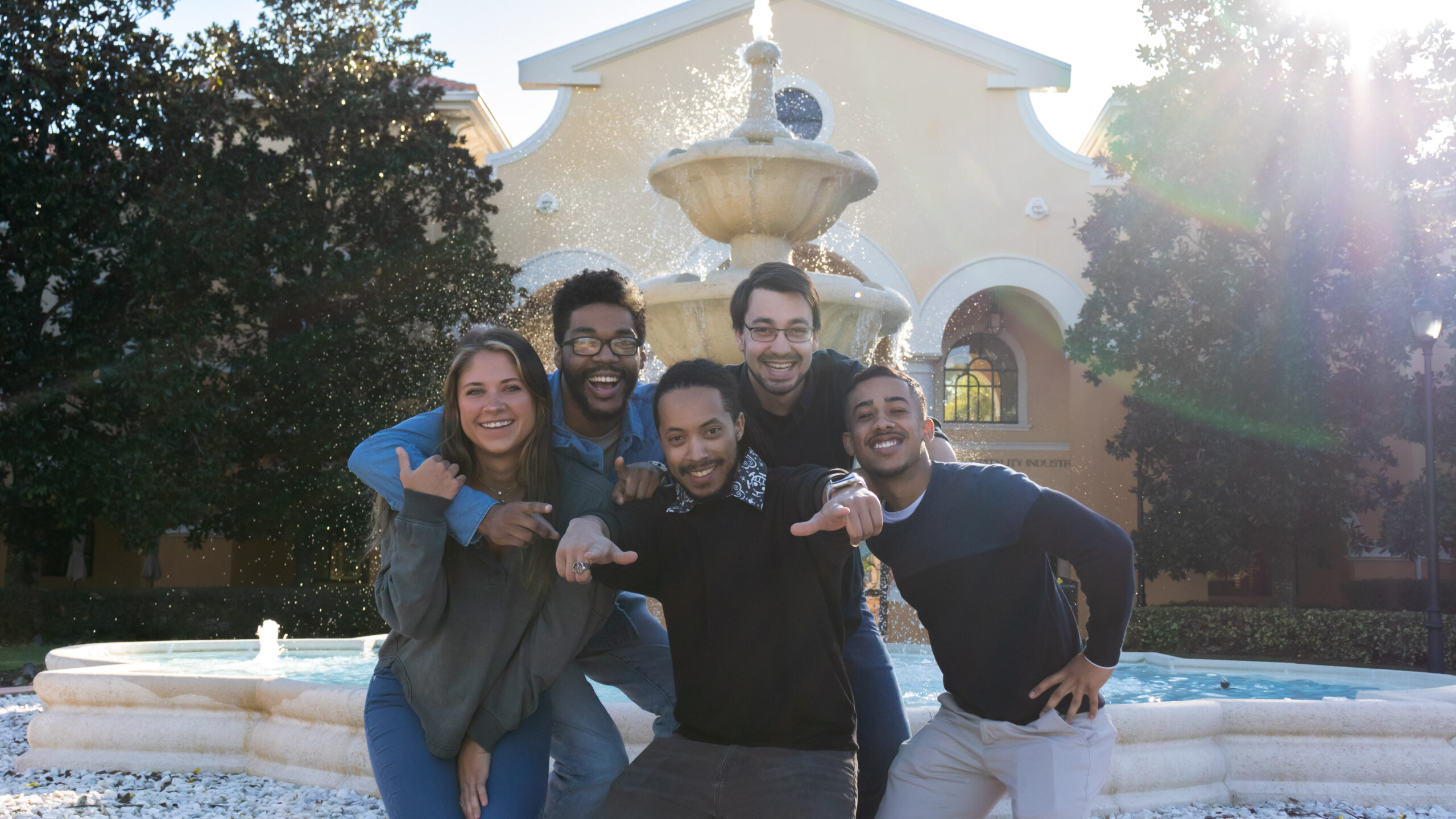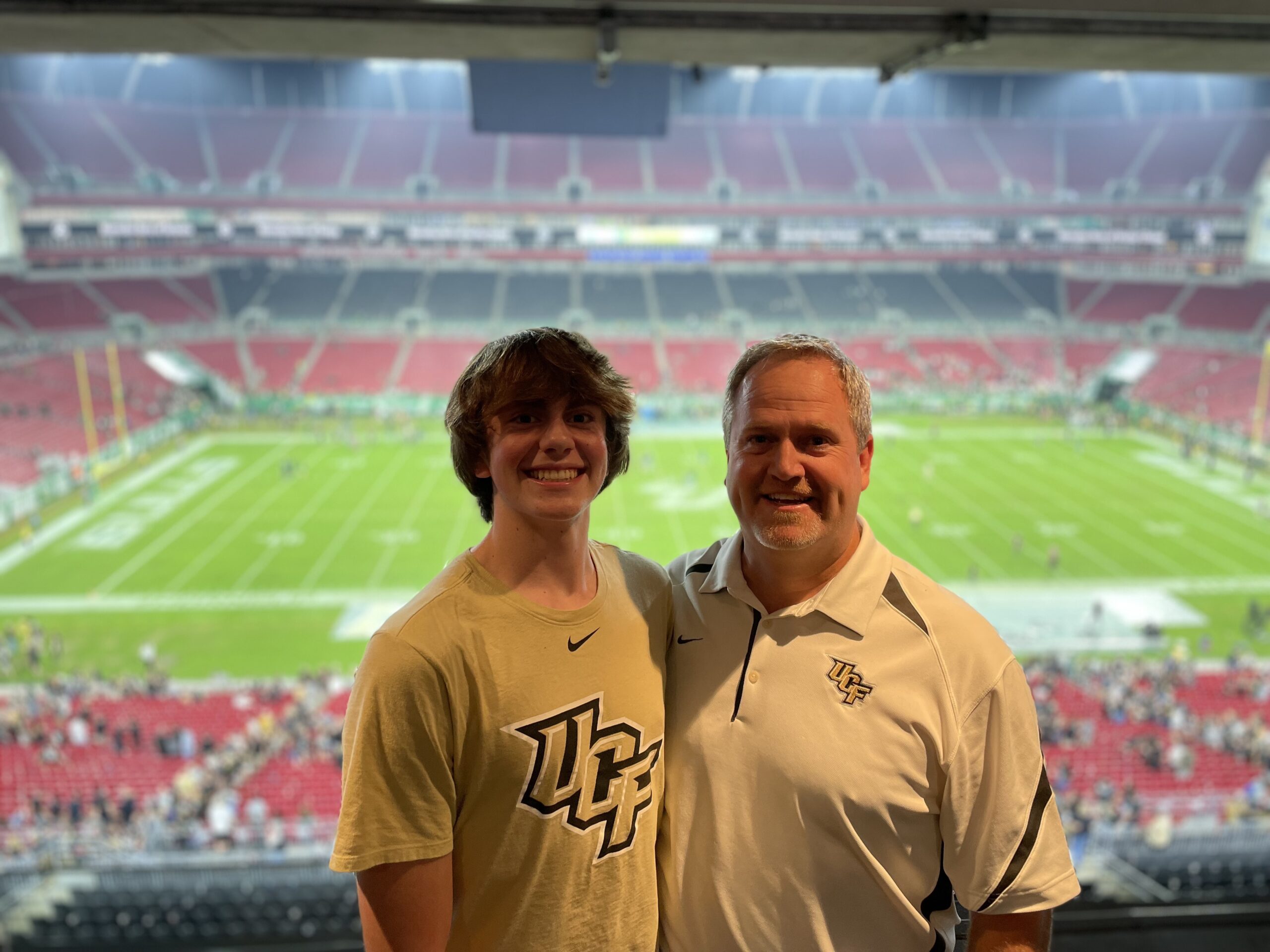‘A Victory for All of Us’: First-Gen Grad Breaks Barriers
By Ashley Cullins
When first-generation student Theresa Kieu ’21 crossed the stage to receive her degree in hospitality management from UCF, she had never seen her parents’ eyes so lit up.
“It was kind of the first step in breaking that generational curse…There is no greater feeling. It meant the past four years weren’t for nothing—all that hard work, the late nights, finishing all my assignments during my breaks at work,” says Kieu. “It was all worth it to see my parents watch me do something they’d never done. In that moment, I could see that it was about more than just myself—it was about my entire family. It felt like a victory for all of us.”
Both of Kieu’s parents immigrated to the United States from Vietnam as teenagers, her mom at 13 and her dad at 16. With large families in need of their support, college never felt like an option. Kieu’s mother graduated from high school. For her father, life got in the way of earning his diploma. They opened salons in Melbourne, instilling in Kieu the value of hard work.
As Kieu started school, she struggled to feel a sense of belonging. “Growing up was really difficult for me when it came to fitting in because English was not my first language. Vietnamese was,” she says. “It was really difficult for me to make friends and go to school. I felt alone from the beginning.”
Later, Kieu also often felt alone in her goals for the future. Her parents’ hopes for her included a stable job and a stable income, but not necessarily higher education.
“[My parents] wanted me to have a steady job because that’s how it was for them when they finished high school. They had to support themselves. They had large families and had to take care of their siblings and be their own parents essentially,” she says. “When I got out of high school, my parents wanted me to get a job first and foremost.”
But Kieu had other plans. She wanted to go to college, and her heart was set on UCF. She loved the Orlando area and the many professional development opportunities available through the university.
With little guidance, navigating the college application process was challenging. And although Kieu wanted to be at UCF, it wasn’t yet financially possible. She eventually heard about DirectConnect to UCF and attended Eastern Florida State College before transferring to UCF.
Kieu’s choice to major in hospitality management was inspired by memories of her parents’ hospitality growing up. Her parents’ house was “the ultimate entertainment destination,” where everyone was welcomed and made to feel at home.
It was her parents’ “hospitable vibe” that enabled them to build a community and a business so many miles from home. “That inspired me to go into hospitality,” says Kieu, “because hospitality is welcoming all.”

As she pursued her degree in hospitality, Kieu also worked full-time, first as a Publix cashier and then as an in-park guest services coordinator at Universal, studying during breaks or late at night.
“When I started, I had no money for college,” she says. “I was really afraid of the road ahead, and I knew I had to work in order to make it work. I figured pursuing a degree was only going to be me, myself and I.”
When Kieu received first-generation scholarship funding both her junior and senior year, she felt more supported and less alone. “That money was a huge opportunity for me. Being a full-time student and a full-time employee, it really helped out with a lot of my stress,” she says.
“The scholarship was also a huge reassurance. It helped all my doubts about being in college melt away and reminded me that there are people out there who realize what a huge opportunity this is for me. It eased the mental burden of first-generation imposter syndrome.”
Kieu describes imposter syndrome as “feeling you’re never going to be enough, do enough or fit in.” It’s a common phenomenon for first-generation students, who are charting a new course for their families, often without the resources and support enjoyed by their peers.
For Kieu, receiving a first-generation scholarship affirmed that she belonged at UCF. And soon, her parents saw it too. “They could see that I have a true passion for hospitality, and this is what I wanted to pursue,” she says.
“They were surprised that I worked every single day nine to five while going to college. I think that’s when they realized how driven I was to complete my degree, and that’s when they started to be really supportive and help out with whatever I needed. It was honestly the best experience for me.”
As Kieu crossed the stage in May during her graduation ceremony, she walked not just for herself, but for “everyone else that came before [her],” and for those who will come after. She says, “I want to be a strong role model, not just for my family and everybody else, but for my little brother. I want to be that support, that backbone, and show him that it’s possible.”
Now, Kieu is working as a senior coordinator for guest communications at Universal Orlando Resort. She has her sights set on graduate school at UCF, with aspirations to drive innovation within the hospitality industry.
Looking back on her time at UCF, Kieu says, “I had all the help I needed and more—more than I could ever ask for.” When she graduated, she was honored to donate to her class gift to fund scholarships for students like her.
“Regardless of how much you give, you’re giving students the motivation and reassurance that earning your degree is possible,” she says. “It’s not just financial support, but the overall message that ‘we are here for you.’ It’s a reminder that there’s someone out there who is willing to invest in you, so you should invest in yourself.”
Investing in First-Generation Students
Those who are the first in their families to go to college often lack the financial resources that enable them to succeed. Like Theresa Kieu, almost 20% of UCF undergraduates are first generation students. Many rely on scholarships or other financial aid.
Make a difference in the lives of this group of over 12,500 students by making a gift today. If you give by Nov. 15, you can triple your impact. For every dollar you donate, the state of Florida will give two more.


